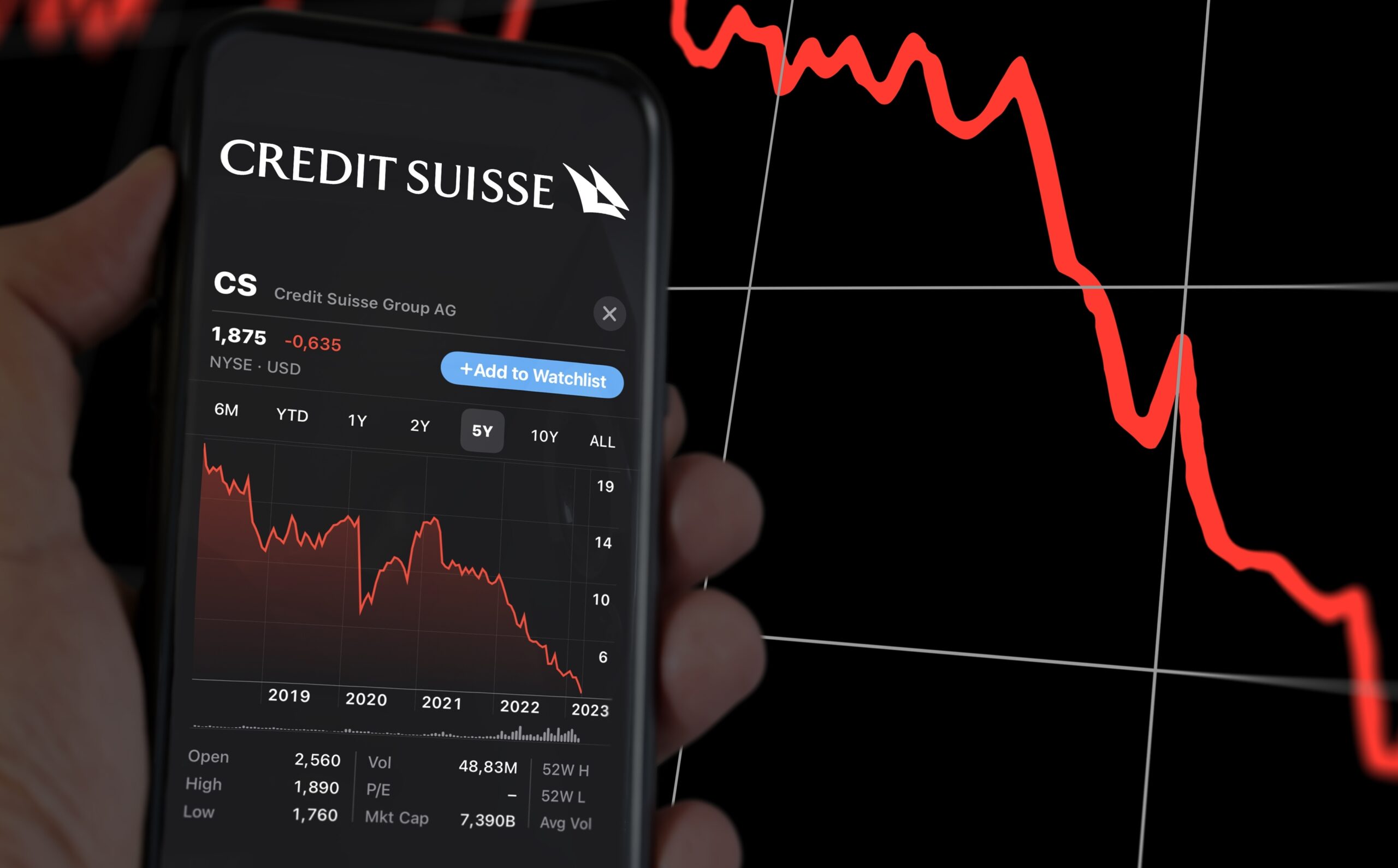Experienced Investor
UBS buys Credit Suisse – but banking shares drop

The Swiss Government has backed the takeover of Credit Suisse by rival UBS amid fears the bank’s collapse could trigger a new banking crisis.
UBS has bought Credit Suisse for $3.23bn – well below its market value, after a weekend of talks. The Swiss Government was keen to get the deal through after it became clear that a $54bn loan to Credit Suisse from the Swiss central bank had failed to calm the markets.
The takeover was made possible after the Swiss federal Government, the Swiss Financial Market Supervisory Authority FINMA and the Swiss National Bank agreed to support the deal.
Only a full transfer of Credit Suisse’s operations was deemed sufficient to stop the collapse of the bank. The structure of the deal has forced bond holders to accept losses while protecting some shareholders to a greater extent.
Susannah Streeter, head of money and markets at Hargreaves Lansdown, said: “Credit Suisse was on life support and Swiss authorities believed only a full transplant of the banks divisions into UBS would restore stability to the banking system. But an operation of this magnitude is a big risk for UBS – that’s why it was only willing to pay $3.23bn, less than half the price its shares valued the bank at on Friday.
“It will not only have to accept the healthier parts of the business but its failing ones as well – particularly its investment division, which has been mired in crisis after crisis. UBS will now be looking to chop up and sell off big chunks of operations, to slim down in size, given that the combined balance sheet is twice the size of Switzerland’s economy.”
Banking crisis
The speed at which Credit Suisse deteriorated, when it was previously deemed “too big to fail”, has rocked the banking sector.
Central banks around the world have acted to reduce the risks of contagion. They’ve co-ordinated currency swaps to enable the smooth flow of money around the world, and to ensure financial institutions can easily tap into the dollars they need to operate.
“Investors in Asia initially welcomed the action, but fresh worries are now coming to the surface about what could happen next. Focus is shifting to the implications of high-risk bond holders in banks, after holders of more risky Credit Suisse debt saw their investment wiped out, as under the deal those additional tier 1 bonds were valued at zero,” Streeter said.
She added: “In bankruptcy proceedings, bond holders are higher up the queue than shareholders, but under the contracts signed the same rules don’t have to apply given Credit Suisse was facing a clear viability issue and had already been given support from the central bank.”
UK banking system ‘safe and sound’
Shares in Standard Chartered and HSBC listed in Hong Kong fell 7% after immediate relief as the Credit Suisse deal evaporated. Smaller lenders will be in focus again, particularly in the US, after First Republic Bank shares tanked by more than 30% despite the $30bn lifeline given to it by large US banks.
However, bigger lenders are considered to be much better protected from issues in the banking sector. They have built up much bigger capital cushions since the financial crisis, have more stable deposits, and some are seeing greater inflows of cash as companies and individuals seek out safer havens to put their money.
A statement from the Bank of England yesterday said: “We welcome the comprehensive set of actions set out by the Swiss authorities today in order to support financial stability.
“We have been engaging closely with international counterparts throughout the preparations for today’s announcements and will continue to support their implementation. The UK banking system is well capitalised and funded, and remains safe and sound.”
The Credit Suisse rescue deal follows the collapse of Silicon Valley Bank (SVB) last week, which involved the bank’s UK arm being bought by HSBC for £1.
Related: Gold demand soars amid SVB fallout: Should investors worry about tech, banks or start-ups?